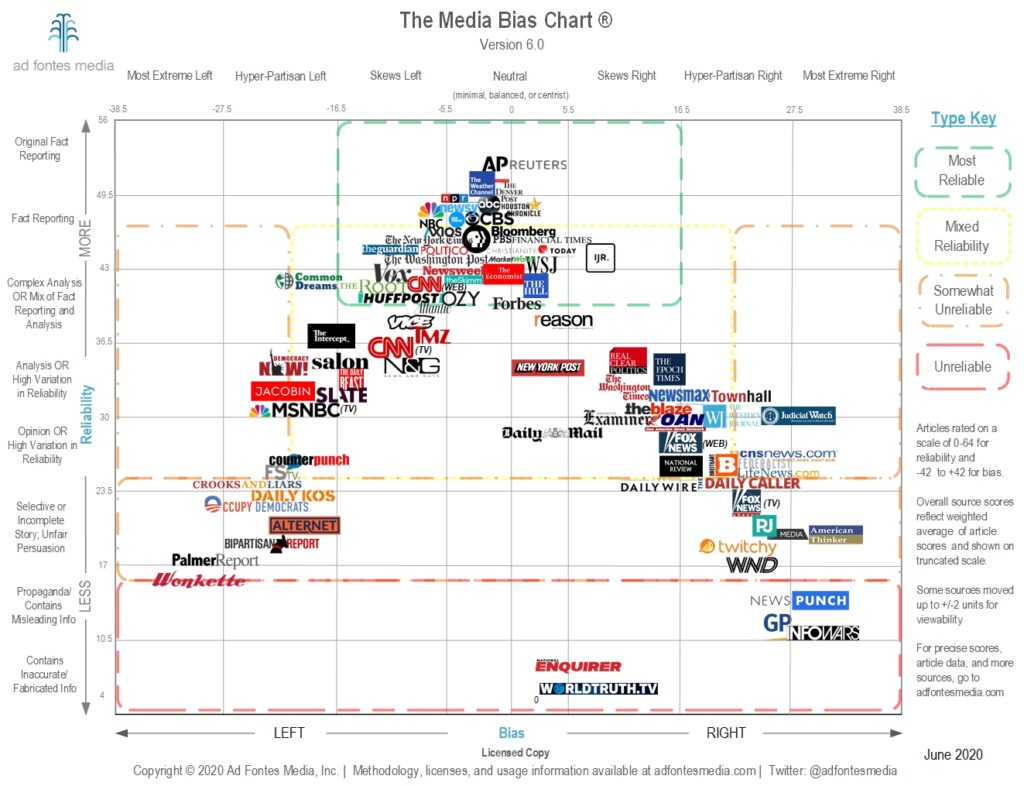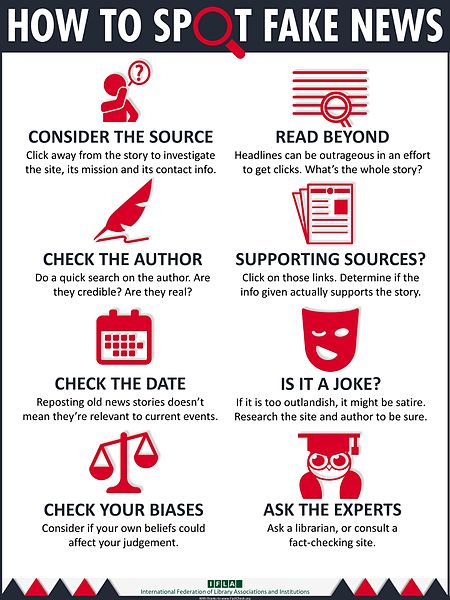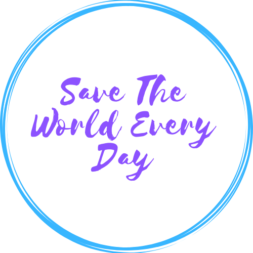The Washington Post recently featured an editorial titled This Was the Week America Lost the War on Misinformation. A couple of days later Axios published Conservative TV Networks Tout Conspiracies. Unfortunately these are just two of many, many examples of how Americans don’t agree on what is true, what is fact or fiction, and it feels like the divide between us is getting larger the worse our collective problems become.
This blog is dedicated to our desperate need in the US to return to a shared sense of reality. Regardless of your politics, 2+2 does not = 5. Our laws can be looked up and confirmed, it’s public information. History is ours to study, not ignore or reconstruct in the image of our biases. Facts can be checked quite easily. The principles of science can be upheld, if we make truth a priority again.
How Did it Get this Bad?
How did we arrive to this moment where even family members and friends cannot agree on what is fact or fiction?
Part of the answer is Donald Trump, who incessantly tweets and retweets misinformation. This is unprecedented; he is the first president to use his personal Twitter account to communicate directly with the public and he is undoubtedly the most fact-checked, and corrected, president in our history. He is, by his position alone, an authority figure and those who support him are inclined to believe him.
Another factor is our expanding access to misinformation though the Internet. Conspiracy theorists, fortune-tellers and plain old liars have always existed, but before the Internet, they didn’t have audiences of hundreds of thousands, millions, of people. Established, professional news agencies now compete with sources that do not meet any of the standards of integrity or responsibility that American journalists have been trained and paid to uphold.
The rise of digital information has also turned the economic model of journalism on its head – they are at once competing with non-news sources for readers and viewers, and losing traditional subscription and advertising revenue as people shift away from newspapers, magazines and journals to digital content. This has led our most trusted sources of news to increase their opinion pieces to compete ( fact-based opinions, but opinions all the same) which now take front-page status in a manner unheard of even a decade ago.
The consequences of hyper politicized information and rampant misinformation are felt in almost every aspect of our lives – in our public discourse, our confidence in experts and institutions, our feelings about education, the rule of law and even our democracy. Our relationships with friends, relatives, science and truth are deteriorating as a direct consequence to our lost consensus around information.
How to Trust Information in a Digital Age with Hyper Political Division
Look at Your Sources
How do we determine which are valid sources of information and which are not? If media is biased to the left or the right, how do we decide if it has any worth at all? Vanessa Otero, a patent lawyer, has been consumed by this question since the 2016 elections. She and a team of researchers and journalists have created a useful chart/guide to analyze how objective and truthful the media we consume is. Here is a short video on her project:

The graph is updated regularly and now includes regional and local media as well as national. “It’s a two-dimensional taxonomy,” Otero says;
“The vertical axis is quality. In general, the better quality, best quality stuff is at the top. The lowest quality stuff is at the bottom. The horizontal axis is bias. You have your neutral or balanced stuff in the middle.”
Clues that Tell You what’s False

If you’re looking for clues it’s not hard to realize a lot of what you see on social media isn’t reliable; a meme that isn’t sourced or a publication or media site that you’ve never heard of should always feel suspicious.
The International Federation of Library Associations and Institutions put out this helpful guide to decide if what you’re reading is true or false.
Double Check with Fact-Checkers
Always check the facts of a story if you have doubt. There are several reputable fact-checkers available, they are free to use and accessible with a click on your computer or phone:
- Politifact: Pulitzer Prize wining site run by editors and reporters from the Tampa Bay Times (Florida) newspaper. “PolitiFact is a fact-checking website that rates the accuracy of claims by elected officials and others who speak up in American politics.”
- FactCheck.org: Project of the Annenberg Public Policy Center of the University of Pennsylvania. “A nonpartisan, nonprofit ‘consumer advocate’ for voters that aims to reduce the level of deception and confusion in U.S. politics.”
- OpenSecrets.org: “Nonpartisan, independent and nonprofit, the Center for Responsive Politics is the nation’s premier research group tracking money in U.S. politics and its effect on elections and public policy.”
- Fact Check: (Washington Post) “The purpose of this Web site, and an accompanying column in the Sunday print edition of The Washington Post, is to “truth squad” the statements of political figures regarding issues of great importance, be they national, international or local.”
- Snopes : “The definitive Internet reference source for urban legends, folklore, myths, rumors, and misinformation.”
- Duke Reporters’ Lab: Fact Checking Includes a database of global fact-checking sites, which can be viewed as a map or as a list; also includes how they identify fact-checkers.
Flex Your Critical Thinking Muscles
The News Literacy Project has created a toolbox of quizzes, tips and rumor fact-check lists to help you navigate our ever-growing information load. These tools encourage us to think critically and clearly as we face divisive messaging in our news feeds. https://newslit.org/get-smart/
This is about Saving what’s Important. Yes, ‘Saving our World’ in a Big Way.
We must return to a shared sense of reality; A shared respect for facts so that we agree on credible sources when we debate opinions and ideas. We need to trust our experts, doctors, scientists and teachers again. We need to have faith in our country’s rule of law and public institutions again in order to move forward as a society.
I hope that the resources outlined above offer helpful tools that you can use in your daily life as you navigate the news as well as your relationships during this period, unlike any in our lifetime.
Thank you for joining this important conversation, please stay safe, and for all of our safety, please wear a mask.


Wanda:
You have listed very helpful and convenient links and sources for a variety of fact checking. Thanks for posting them in one place.
The bottom line concern for me:
Has America lost its sense of, and commitment to, “the common good”? If so, can we Ever recover?
Paul thank you for your comment, I worry about that too. The common good, for all of us as citizens of a nation, doesn’t seem to be part of the conversation enough!